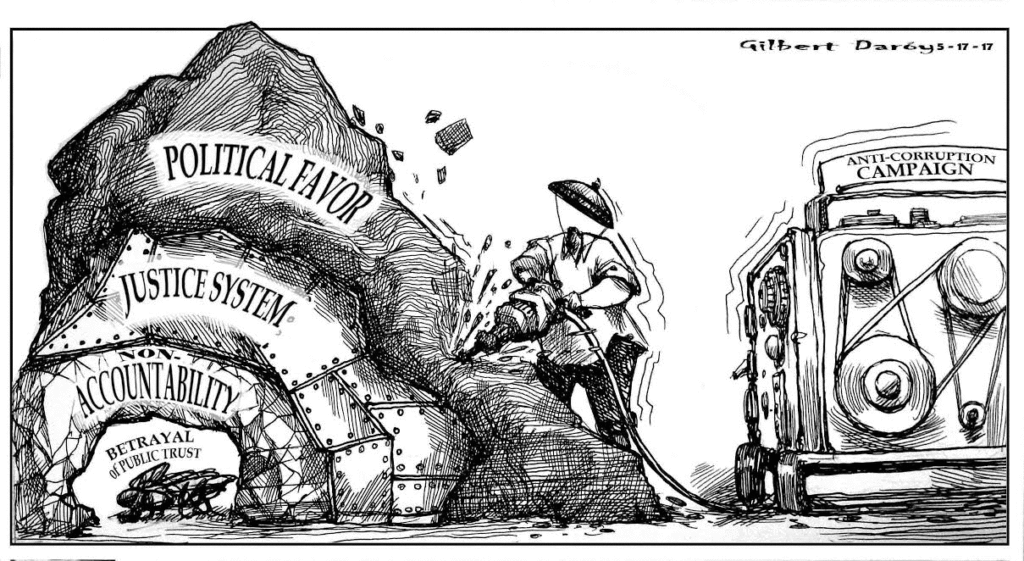US gov’t: Corruption in PH continues to hamper trade
LOS ANGELES — The issue of corruption in the Philippines continues to obstruct the trade and investment relations between Manila and Washington, according to the Office of the United States Trade Representative (USTR).
In its 2018 National Trade Estimate Report of Foreign Trade Barriers, the USTR pointed out that corruption is a “pervasive” and “longstanding” problem in the Philippines.
“National and local government agencies, particularly Bureau of Customs (BOC), are beset with various corruption issues,” the USTR said.
Just like in its 2017 report, the USTR also mentioned anew that both foreign and domestic investors have expressed concern about the “propensity of Philippine courts and regulators to stray beyond matters of legal interpretation into policymaking, as well as the lack of transparency in judicial and regulatory processes.”
Investors, likewise, have raised concerns about “courts being influenced by bribery and improperly issuing temporary restraining orders to impede legitimate commerce.”
Data from the USTR showed that U.S. goods exports to the Philippines in 2017 were $8.5 billion, making Manila Washington’s 31st largest goods export market in 2017; while imports from the Philippines were $11.6 billion.
On the other hand, U.S. exports of services to the Philippines were an estimated $2.6 billion in 2016, while imports were $6.1 billion.
The U.S. goods and services trade with the Philippines totaled an estimated $27.0 billion in 2016.
Other barriers
Concerning technical barriers to trade, the U.S. continues to press the Philippines to remove “unjustified requirements” that treat frozen meat differently from fresh meat
The report further said that U.S. continues to ensure that the Philippine Department of Agriculture (DA)’s requirements for importers “to obtain a sanitary and phytosanitary permit prior to shipment of any agricultural product and to transmit the permit to the exporter” will not hamper trade.
In terms of intellectual property rights protection, the report stated that U.S. rights holders have expressed concerns about the “continued availability of pirated and counterfeit goods in the Philippines, slow investigation of IPR related cases by the Department of Justice, and judicial inexperience in handling IPR enforcement cases, both civil and criminal.”
The USTR also discussed barriers to digital trade, particularly internet services.
“The Philippines requires government agencies to procure cloud computing services from the Government Cloud (GovCloud), a cloud infrastructure set up by the Department of Information and Communications Technology (DICT),” the report read.
Such restrictions, according to USTR, “could prevent Philippine government agencies from accessing best-in-class cloud services.”


